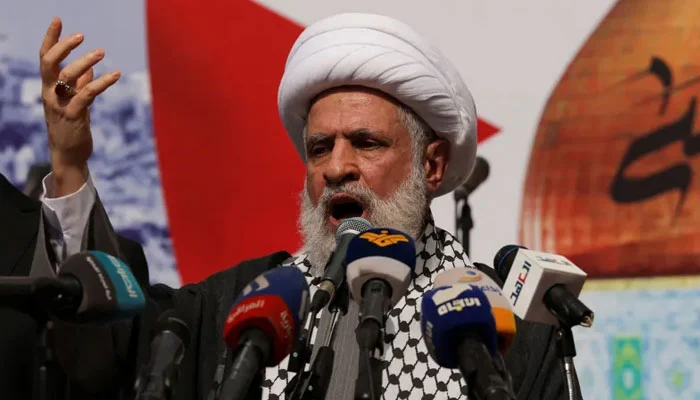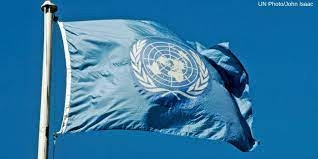In the midst of the ongoing conflict between Israel and the Palestinian organization Hamas, both Shia and Sunni communities have mobilized, intensifying tensions in the region. Hezbollah, a Shia militant group, has responded to Israeli attacks by successfully targeting military objectives in four Israeli cities: Al-Abad, Maskafam, Ramah, and Jaal Al-Alam.
In Lebanon, Israel targeted the area around Yarin village with phosphorous bombs. Israeli forces attacked a global media team’s vehicle in southern Lebanon, resulting in the death of the cameraman and injuries to five journalists, including a female reporter.
Referring to Quranic verses, Hezbollah stated that fighting against oppressors is permitted during war. Naim Qasim, the deputy leader of Hezbollah, declared full readiness to support Hamas in its conflict with Israel during a rally in Beirut, adding that they would intervene “when the time comes.”
The international community is increasingly alarmed about the situation, with fears that Israel’s siege on Gaza and bombings of civilian areas could lead to a wider conflict. Iran’s Foreign Minister, Amir Abdollahian, warned that if Israel continued its blockade on Gaza and bombings of cities, supported resistance fighters might open new fronts against Israel.
Amidst this, Hassan Nasrallah, the leader of Hezbollah, stated that ongoing Israeli crimes against Palestinians in Gaza would undoubtedly provoke social backlash. Saudi Arabia condemned forced evictions in Gaza and attacks on civilian areas, terming them unacceptable.
Prince Faisal bin Farhan, Saudi Arabia’s foreign minister, communicated with British counterpart James Cleverly and other European Union counterparts, emphasizing the importance of the global community’s role in preventing forced evacuations and halting Israeli attacks.
The situation in Gaza remains dire, with Israel attempting to evacuate approximately 110,000 residents from northern Gaza within 24 hours, threatening them with military action. Despite the threats, thousands of Palestinians remain on the streets, with no viable escape routes, as Egypt also denied opening its borders.
In a significant development, hundreds of individuals from Sinai’s desert region in Egypt are reportedly carrying relief supplies to Gaza. Although Israeli tanks entered Gaza’s territory, they retreated shortly afterward. On the other side, Israel continued its airstrikes, and the number of Palestinian casualties has risen to 1,800, including civilians.
Hamas’ military wing, the Al-Qassam Brigades, claimed to have fired 150 rockets on Friday morning. They also reported that during the last 24 hours of Israeli aerial assaults, at least 13 Israeli and foreign detainees have been killed in Gaza’s strip.
In Jerusalem, tensions escalated further. Israeli forces directly confronted worshippers inside Al-Aqsa Mosque, preventing them from performing Friday prayers. The situation outside the mosque remained volatile, and Palestinians managed to pray just outside its premises.
Turkish President Recep Tayyip Erdogan strongly condemned Israel’s declared red line for the evacuation of northern Gaza, terming it unacceptable. The international community continues to closely monitor the situation, urging both parties to cease hostilities and work towards a peaceful resolution.



